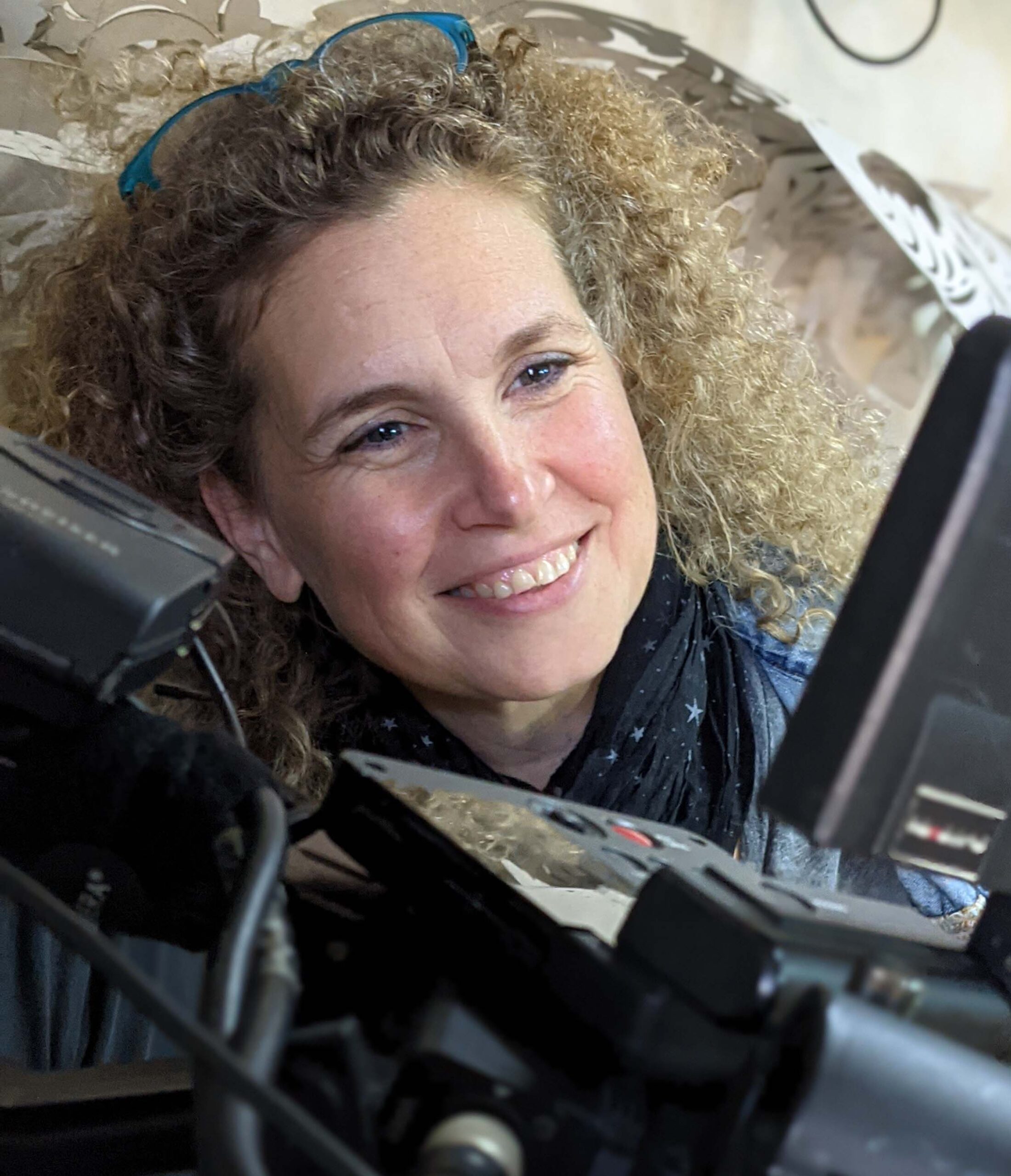In film school, I was taught that film editing plays a crucial role in pushing the director’s vision into full realization. That was the full truth for me until I had the chance to work with Michèle Tyan and watch her turn a hundred hours of unsystematically recorded footage into an award-winning masterpiece. I realized then that film editors are sometimes the invisible co-authors of films. They don’t only help directors realize the full potential of their footage; at times, they rewrite the film at the editing table with them as well.
“Editing is a form of writing. It is, in fact, a rewriting of the film. At the editing table, the style of the movie takes shape; its identity reveals” says Michèle. A pioneering entrepreneur, film editor, producer and director, lecturer, avid learner, and mother of three, but above all, Michèle Tyan is an outstanding artist and a role model.
Torn between mathematics and filmmaking, Michèle enrols at the École Supérieure de Réalisation Audiovisuelle (ESRA), the International Film School in Paris in 1990, where she discovers her preference for film editing over the other aspects of filmmaking. Although she was very attached to her hometown Beirut, the years she spent in Paris were instrumental in shaping her politically engaged artistic character.
While completing the three-year program at ESRA, Michèle also meets and works with the Lebanese film director Jocelyne Saab, assisting her in all aspects of her work. Despite the age difference, the two artists become friends over the course of one and a half years of collaboration. Michèle learns through the hands-on practical experience with Jocelyne all about filmmaking. She even plays a lead role in one of Saab’s movies, Kan Ya Ma Kan, Beyrouth (Once Upon a Time in Beirut).
In 1993, Michèle returns to Beirut with the hopes of working on the set of Maroun Baghdadi’s new production, only to be shocked by the news of his sudden death. The incident disturbed the young editor, back then 21 years of age, to the core but inspired her decision to stay and work in Lebanon. For one year and a half, she works as an assistant director in an advertising company – the only active sector in the audio-visual world in Lebanon besides television at the time. Not feeling at home in the advertisement sector, she decides with a friend, Pierre Salloum, to quit and start the first post-production house in Lebanon. In 1995 Djinn House Productions is born.
The nineties mark a period of radical change in the filmmaking industry, in general, and in the editing sector, in particular. Filmmaking started to slowly shift away from film stock and analogue video recording into digital recording, while editing moved more swiftly to the digital era, shifting from linear to non-linear editing.
The timing was indeed ripe for a non-linear postproduction firm to establish itself as a leading company in the field but the filmmaking sector in Beirut was, back then, small and highly competitive. Existent Production companies did everything from day one of preproduction to the last day of postproduction. So, starting a postproduction company was an innovative and audacious idea for such a market. The young dreamers had to establish a mentality of cooperation that was quite foreign to the industry at the time, and they succeeded with flying colours. A year after the launch of Djinn house, a producer who thought that renting some of his production equipment for a Djinn House project was a funny idea ended up renting them his equipment and becoming one of Djinn House’s loyal clients.
Since the launch of Djinn House, Michèle Tyan has been an integral contributor to the growth of the Lebanese independent film scene. As an editor, she collaborated on feature films directed by prominent directors such as Ghassan Salhab, Bahij Hojeij, Mai Masri, Michel Kammoun, and documentary filmmakers such as Jean Khalil Chamoun, Akram Zaatari, Tamara Stepanyan, Zeina Daccache, and Reine Mitri. In addition to directing and producing several documentaries and corporate films herself.
Michèle’s work experience makes her an ideal teacher but that doesn’t stop her from learning more. For her work as a university lecturer at ALBA (Académie Libanaise des Beaux-Arts), Michèle spends hours reading in preparation for a class. She insists that her students get adequate, up-to-date theoretical knowledge to back up their practical training. Her teaching doesn’t stop at the university doorsteps; she also opens her company’s doors to interested students to carry out internships.
Besides being a company owner/manager, a film editor, and a lecturer, Michèle is a curious, restless soul who doesn’t stop seeking new experiences and exploring her endless potential.
She is a member of a monthly book club, an activity she is keen on maintaining no matter how busy her schedule gets.
In preparation for her first feature film, she enrolled in a series of writing workshops in the past years to help develop the idea of the screenplay that she recently completed. Her first film tells the story of Nayla, a woman in her fifties who fight to keep her family afloat in a collapsing country. It is currently in the preproduction phase in collaboration with producer Sabine Sidawi, co-founder of Orjouan Productions.
Between 2010 and 2012, I had the pleasure and the privilege to work with Michèle and watch her juggles all aspects of her life with utter grace. Besides her work, I also admired her dedication to her two wonderful children and witnessed her life while giving birth to her third child. As a mother, despite her packed schedule, she woke up with them every morning, talked to them at launch break, and never missed tucking them to bed, even when that meant returning to the office at 9 pm to meet a project deadline. She is, indeed, a magnificent jinni and an example to follow.
By: Jana Al Obeidyine, a dancer, writer and independent publisher based in Beirut- Lebanon.
Copyright Photos: Michèle Tyan / Djinn House
